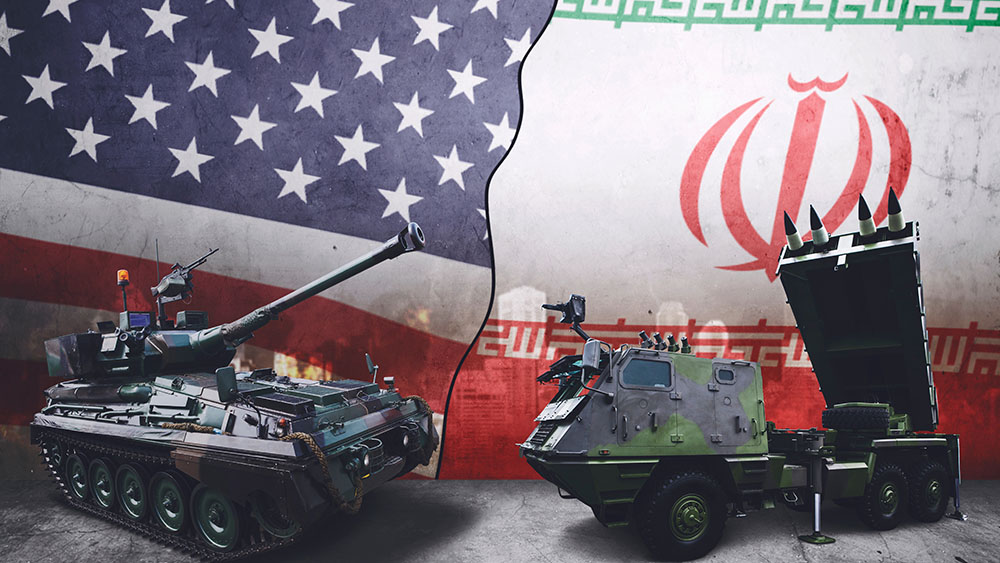 Parler
Parler Gab
Gab
(Related: Earlier this year, we warned that insurance companies were altering their policies to exclude coverage for injuries or sickness caused by war, rioting, insurrection.)My friend sent this to me and said he received it in the mail. Interesting…? pic.twitter.com/emBdSXYhqL
— Dr. Ben Tapper (@DrBenTapper1) April 7, 2024
Is the insurance industry expecting World War III?
Though war exclusions are technically nothing new for insurance carriers, they do have ominous implications for what is soon expected. Click For Cover, now known as CFC.com, published a piece last year that explains why. In the spring of 1937 when German bombs fell on Guernica, Spain, flattening 70 percent of the town's buildings in less than three hours, property insurers were completely unprepared because they were not expecting such a thing to happen. "They soon realized it wouldn't take many Guernicas to wipe out the balance sheets," CFC says. "They responded by adding exclusions to policies for acts of war – a move reflected in contracts to this day." CFC says that insurers "are moving to address war again" now that it is clear there are major developments taking place on the march towards World War III. CFC says cyber war specifically is at the forefront of the insurance industry's worries, but anything could happen. "This time the concern is cyber war – specifically, attacks so catastrophic that they cripple a nation’s ability to function," CFC says. "Lloyd's of London have mandated the exclusion of such scenarios from March 31st of this year. Some in the market are resisting the move." "Insurance brokers are suspicious when new exclusions appear. And rightly so; they usually signal a reduction in cover for policyholders. They present problems for brokers when clients discover they don’t have the cover they thought they did." Back in the day, cyber war would have had no meaning since there were no computers. Today, the definition of war has greatly expanded to include a lot of things that policyholders need to know about because it could mean that they will not be covered once the "bombs," including cyber bombs, drop. "Mainstream global security organisations now accept that modern war includes cyber-attacks," CFC explains. "Article 2 (4) of the United Nations Charter prohibits the threat or use of force by one state against another. This applies to nation state conduct in cyberspace." "While armed attack is still considered the most serious use of force, cyber-attacks fall under this definition too. In 2019, NATO, the world's largest military alliance, confirmed this. Secretary General Jens Stoltenberg announced that a 'serious cyber-attack could trigger article 5,' a reference to the collective self-defence clause at the heart of NATO's founding treaty." Simply put, there are a whole lot of events that are now considered to be "war" in the eyes of both the government and the insurance industry. By adding war exclusions to policies, many policyholders will likely find themselves in a serious bind when they realize their assets are no longer covered. "Imagine a company trying to pay out damages to infrastructure in Gaza right now," one commenter wrote about current events. "Imagine offering coverage on nuclear damages," wrote another about how the insurance industry could never cover a nuclear attack and survive. The latest news about the slow descent into another world war can be found at WWIII.news. Sources for this article include: Twitter.com NaturalNews.com CFC.comIran threatens larger attack if Israel doesn’t back off with its aggression
By Ethan Huff // Share
No escape from the meat grinder: Zelensky signs tyrannical mobilization bill
By Ramon Tomey // Share
Report: U.S. and U.K. helped shoot down Iranian drones and missiles launched against Israel
By Ramon Tomey // Share
Andrew Meyer: Netanyahu, IDF and Mossad allowed Oct. 7 attack to happen
By Kevin Hughes // Share
Governments continue to obscure COVID-19 vaccine data amid rising concerns over excess deaths
By patricklewis // Share
Tech giant Microsoft backs EXTINCTION with its support of carbon capture programs
By ramontomeydw // Share
Germany to resume arms exports to Israel despite repeated ceasefire violations
By isabelle // Share










